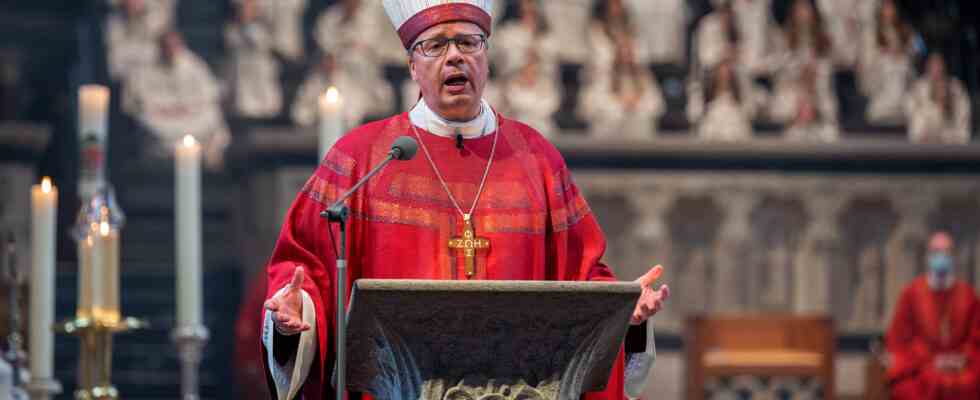analysis
Status: 09/28/2022 11:00 a.m
For some he was too bold, for others too thin-skinned and slow: After twelve years, the balance of the abuse commissioner of the bishops’ conference is mixed. What remains of Ackermann – and what’s next?
As announced in May, Trier Bishop Stephan Ackermann is resigning after twelve years as commissioner for abuse at the German Bishops’ Conference. When Ackermann became the abuse officer in 2010, he had only been Bishop of Trier for nine months. The then 46-year-old was new to the circle of Catholic shepherds and probably knew just as little as his brothers in office, who elected him to the new office, what awaited him there.
A few weeks earlier, the Jesuit Father Klaus Mertes had made public cases of sexual abuse at the Canisius College in Berlin. Nobody could have guessed what waves the topic would make and what immense loss of trust it would entail for the Catholic Church in Germany.
“Devastating for the Church’s reputation”
Ackermann positioned himself clearly in his office right from the start. In contrast to some of his colleagues, he pointed out early on that there should be no trivialization and no cover-up. He also described the consequences of sexual violence as devastating for the reputation of the church.
The Bishop of Trier played a decisive role in bringing about the “MHG study” of the German dioceses on the abuse of minors. The study, named after the locations of the universities of the research consortium (Mannheim-Heidelberg-Gießen), was published in September 2018 and spoke of 3,677 victims of sexual assaults by at least 1,670 priests and religious in the period from 1946 to 2014.
Disagreement in the Bishops’ Conference
Ackermann tried to regain lost trust with new guidelines for dealing with cases of abuse. In addition, he relied on a uniform approach by all bishops. This suggestion, however, was repeatedly torpedoed by the ranks of his officials.
For some he was too bold, for others too slow, and it became apparent – as is currently the case with the synodal path – that the German Bishops’ Conference is not only heterogeneous, but that there are also camps that work against each other. No wonder word of the abuse officer’s “thankless job” made the rounds.
The participants of the German Bishops’ Conference at their meeting in Fulda in 2021. Stephan Ackermann relied on a uniform approach by all bishops. This suggestion, however, was repeatedly torpedoed by the ranks of his officials.
Image: dpa
Criticism from your own diocese
Ackermann often showed himself to be quite emotional, thin-skinned and clumsy. In the summer of this year, in front of about 40 employees of his diocese in Trier, he gave the real name of a victim of sexual assault known under a pseudonym. As the “Süddeutsche Zeitung” reported, a canon lawyer in Rome accused him of this.
The accusation is that Ackermann also indirectly broke the seal of confession in this context. In addition, the association MissBiT (“victims of abuse and those affected in the Diocese of Trier”) accuses him of being dishonest, hiding behind bureaucracy and playing for time. So far there is no comprehensive report on sexual abuse in the Diocese of Trier.
With open questions in the future
It is not yet clear how the German bishops’ conference intends to deal with sexual abuse in the future. Over the past few weeks, it has repeatedly been said that Bishop Ackermann’s work could also be taken over by a multi-person committee. Today the chairman of the bishops’ conference, Georg Bätzing, wants to present the next steps.
Irrespective of this decision, the German bishops should not be able to avoid the still open question of who is actually responsible for the serious consequences of sexual abuse within the Catholic Church.
Finding an appropriate answer shouldn’t be easy, however: Victim representatives have said they expect personal consequences. From the ranks of the bishops, on the other hand, it is said again and again that many of them have not been in office for that long and have not been involved in cases of abuse, which is why it is inappropriate for them to resign.
It is doubtful whether this line of argumentation will serve to solve the current crisis within the Catholic Church in Germany in the long term.

